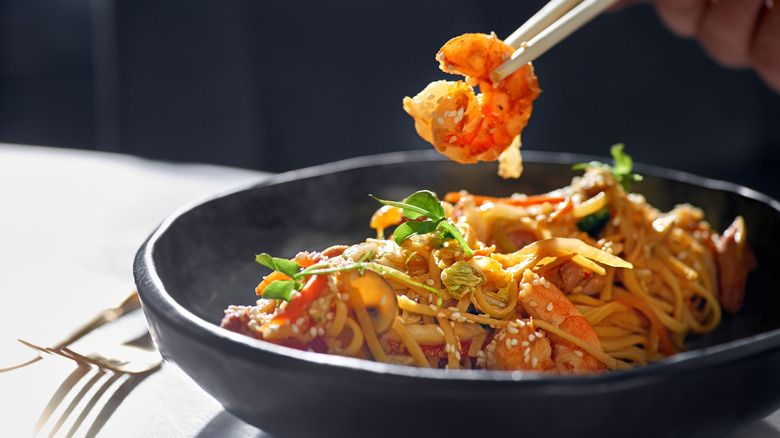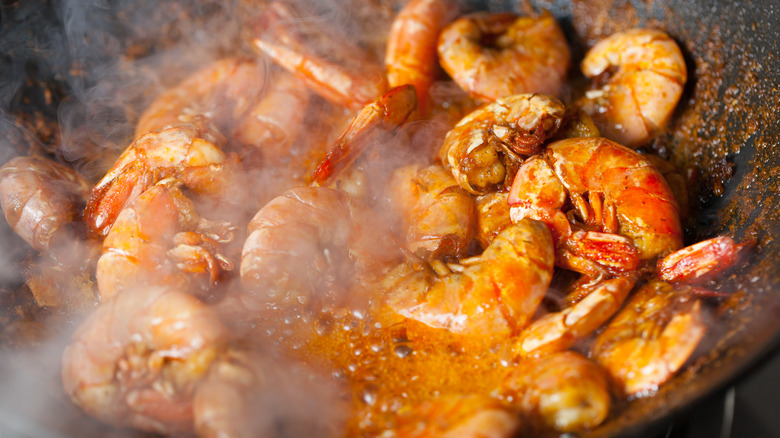The Simple Technique Chinese Restaurants Use To Tenderize Shrimp
One of the cooking terms that gets thrown around a lot these days is "velveting," which is a preparation technique used for meat as well as for shrimp and other types of seafood. Many people understand it to mean coating the meat in baking soda or cornstarch, while others see it as a marinating technique that makes for extra-tender stir-fries. Michael Schukar, a chef with Toku Modern Asian Cuisine, gave a different description. He told The Takeout, "Velveting is poaching in low to medium temperature oil."
So how does velveting make for more tender shrimp? Schukar explained, "It cooks more slowly, which allows the shrimp to cook thoroughly without overcooking and becoming rubbery." (Rubberiness is the sworn enemy of tenderness.) He added the caveat, "Velveting is only done on raw shrimp; you should not try this method on cooked shrimp." He did note, however, that thawed frozen shrimp is fine to use. Good to know, because unless you own your own shrimp boat or hang out at the docks, any so-called fresh shrimp you buy at the supermarket or even a high-end boutique fishmonger was likely frozen at some point. (Most shrimp are frozen as soon as they're caught to prevent them from spoiling.)
How to velvet shrimp
Michael Schukar velvets shrimp with a high smoke point oil. He gave the example of soybean oil, which can be heated up to 450 degrees Fahrenheit. (Corn oil and peanut oil have similar smoke points, while safflower oil is good all the way up to 510 degrees Fahrenheit.) He then heats a wok until it's hot enough that a drop of water will immediately evaporate. He adds sufficient oil to cover the shrimp, puts the shrimp in the wok, and stirs them around until they all look opaque and appear to be cooked. If you're wondering about any added ingredients, these aren't entirely necessary, although Schukar did say that a cornstarch coating "would add a soft velvety texture to the shrimp."
When it comes to preparing the shrimp, timing is important. As Schukar told us, "You want to velvet them as close to consumption as possible because they will continue to cook when you remove them from the oil." If you find yourself having to delay dinner, you can refrigerate them, but as per Schukar, "I do not recommend storing the shrimp unless you plan to serve it cold." The reason for this is that any method used to reheat shrimp will result in overcooking it and destroying all the tenderizing that was accomplished by the velveting.

